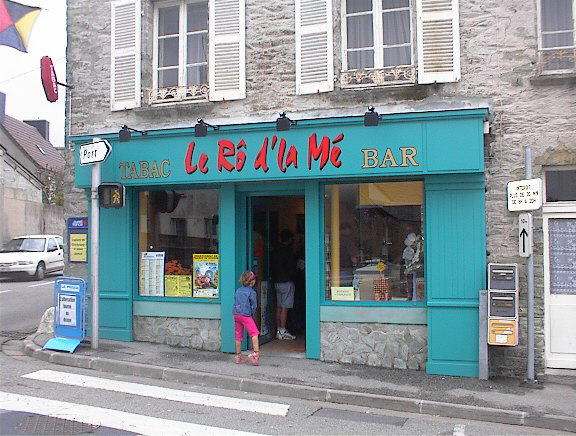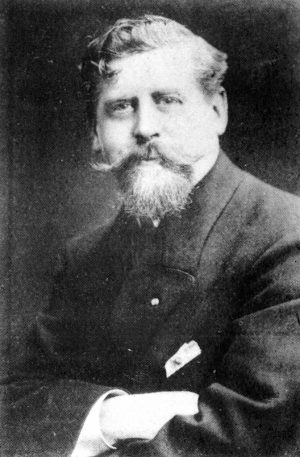|
List Of Norman-language Writers
This is a list of Norman-language writers and their published works of more recent times (for Channel Island authors, ''see Jèrriais literature and Dgèrnésiais''). Literature in Norman ranges from early Anglo-Norman literature through the 19th-century Norman literary renaissance to modern writers. Authors are sorted by date of birth. ; Jean Dorey (1831-1872), from Jersey ; Arnould-Désiré Galopin (9 February 1863 – 9 December 1934, from Marbeuf) : Best known as a prolific author in French of popular fiction: adventure stories, historical novels, travel writing and detective fiction, Galopin also wrote the article ''Le Patois normand'' published in ''Le livre du Millénaire de la Normandie, 911–1911'' (Paris 1911) and is known to be responsible for the authorship of a small number of poems in the La Hague dialect of Norman. ; Charles Lepeley (1889–1970, from Barfleur) :A parish priest in the Val de Saire, between 1928 and 1938, the Abbé Charles Lepeley wrote about a ... [...More Info...] [...Related Items...] OR: [Wikipedia] [Google] [Baidu] |
Jèrriais Literature
Jèrriais literature is literature in Jèrriais, the Norman dialect of Jersey in the Channel Islands. The literary tradition in Jersey is traced back to Wace, the 12th century Jersey-born poet, although there is little surviving literature in Jèrriais dating to before the introduction of the first printing press in Jersey in the 1780s. The first printed Jèrriais appears in the first newspapers at the end of the 18th century, and the earliest identified dated example of printed poetry is a fragment by Matchi L’Gé (Matthew Le Geyt 1777–1849) dated 1795. 19th century An astonishing boom in competing newspapers and journals throughout the 19th century provided a platform for poets and writers to publish regularly in the feuilletons - typically, satirical comment on the week's news, elections, politicians and notables. Annual almanacs (up until 1958) reprinted favourite poems and stories that had appeared throughout the year, or specially composed pieces. The copious Dgèr ... [...More Info...] [...Related Items...] OR: [Wikipedia] [Google] [Baidu] |
Norman Language
Norman or Norman French (, french: Normand, Guernésiais: , Jèrriais: ) is a Romance language which can be classified as one of the Oïl languages along with French, Picard and Walloon. The name "Norman French" is sometimes used to describe not only the Norman language, but also the administrative languages of ''Anglo-Norman'' and '' Law French'' used in England. For the most part, the written forms of Norman and modern French are mutually intelligible. This intelligibility was largely caused by the Norman language's planned adaptation to French orthography (writing). History When Norse Vikings from modern day Scandinavia arrived in Neustria, in the western part of the then Kingdom of the Franks, and settled the land that became known as Normandy, these North-Germanic–speaking people came to live among a local Gallo-Romance–speaking population. In time, the communities converged, so that ''Normandy'' continued to form the name of the region while the original No ... [...More Info...] [...Related Items...] OR: [Wikipedia] [Google] [Baidu] |
Anglo-Norman Literature
Anglo-Norman may refer to: *Anglo-Normans, the medieval ruling class in England following the Norman conquest of 1066 * Anglo-Norman language ** Anglo-Norman literature * Anglo-Norman England, or Norman England, the period in English history from 1066 till 1154 *Anglo-Norman horse, a breed from Normandy, France *Anglo-Norman Isles, or Channel Islands, an archipelago in the English Channel * CSS ''Anglo-Norman'', a gunboat of the Confederate Navy See also *Cambro-Normans *Normans in Ireland *Scoto-Norman The term Scoto-Norman (also Franco-Scottish or Franco-Gaelic) is used to describe people, families, institutions and archaeological artifacts that are partly Scottish people, Scottish (in some sense) and partly Anglo-Normans, Anglo-Norman (in some ... {{disamb Language and nationality disambiguation pages ... [...More Info...] [...Related Items...] OR: [Wikipedia] [Google] [Baidu] |
Jean Dorey
Jean Dorey, (27 January 1831 of Ville-ès-Nouaux in Saint-Hélier–23 August 1872), was a Norman language writer from Jersey. Of a family of La Blanche Pierre in the parish of St. Lawrence, Jean Dorey wrote under the pen names of JD, JDR and Jean des Ruettes in Jèrriais, in French and in English. He wrote sometimes in a phonetic version of Jerriais. A number of his short poems were published in the ''Nouvelle Année'' around 1870. He was also the author of a book. A number of saying, nursery rhymes, and poems were left in a manuscript which passed to Fraînque Le Maistre and is today in the library of the Société Jersiaise. He was an author in French and English of historical, genealogical and art articles on various subjects. During the course of his life, he worked with the ''Chronique de Jersey'' (Jersey Chronicle), ''Jersey Independent'', ''l'Imprimerie de l'International'' in London and also ''Le Phare de la Loire'' in France France (), officially th ... [...More Info...] [...Related Items...] OR: [Wikipedia] [Google] [Baidu] |
Jersey
Jersey ( , ; nrf, Jèrri, label= Jèrriais ), officially the Bailiwick of Jersey (french: Bailliage de Jersey, links=no; Jèrriais: ), is an island country and self-governing Crown Dependency near the coast of north-west France. It is the largest of the Channel Islands and is from the Cotentin Peninsula in Normandy. The Bailiwick consists of the main island of Jersey and some surrounding uninhabited islands and rocks including Les Dirouilles, Les Écréhous, Les Minquiers, and Les Pierres de Lecq. Jersey was part of the Duchy of Normandy, whose dukes became kings of England from 1066. After Normandy was lost by the kings of England in the 13th century, and the ducal title surrendered to France, Jersey remained loyal to the English Crown, though it never became part of the Kingdom of England. Jersey is a self-governing parliamentary democracy under a constitutional monarchy, with its own financial, legal and judicial systems, and the power of self-determination. Th ... [...More Info...] [...Related Items...] OR: [Wikipedia] [Google] [Baidu] |
Arnould Galopin
Arnould Galopin (1865, Marbeuf, Eure - 1934) was a prolific French writer with more than 50 novels to his credit. Galopin won the French Academy's Grand Prize for his ''Sur le Front de Mer'' (1918), a critically acclaimed novel about the Merchant Navy during World War I, and wrote several equally acclaimed novels about his experiences during the war. Galopin also wrote a number of science fiction novels in the Jules Verne and H. G. Wells style, including the remarkable ''Doctor Omega'' (1906), ''La Révolution de Demain'' (Tomorrow's Revolution) (1909) and ''Le Bacille'' (1928), an uncannily prophetic tale of a mad scientist who uses biological warfare for revenge. He also penned numerous young adult novels such as ''Le Tour du Monde de Deux Gosses'' (Two Kids Around The World) (1908) and ''Un Aviateur de 15 ans'' (A 15-Year Old Aviator) (1926). Finally, Galopin was the creator of Tenebras, the Phantom Bandit, a rival of Fantômas, and of the fictional detective Allan Dickson, on ... [...More Info...] [...Related Items...] OR: [Wikipedia] [Google] [Baidu] |
La Hague
La Hague () is a commune in the department of Manche, northwestern France. The municipality was established on 1 January 2017 by merger of the former communes of Beaumont-Hague (the seat), Acqueville, Auderville, Biville, Branville-Hague, Digulleville, Éculleville, Flottemanville-Hague, Gréville-Hague, Herqueville, Jobourg, Omonville-la-Petite, Omonville-la-Rogue, Sainte-Croix-Hague, Saint-Germain-des-Vaux, Tonneville, Urville-Nacqueville, Vasteville and Vauville. 27 September 2016 Population See also * References |
Barfleur
Barfleur () is a commune and fishing village in Manche, Normandy, northwestern France. History During the Middle Ages, Barfleur was one of the chief ports of embarkation for England. * 1066: A large medallion fixed to a rock in the harbour marks the Normans' departure from Barfleur before the battle of Hastings. * 1120: The , carrying the sole legitimate heir to Henry I of England, William Adelin, went down outside the harbour, setting the stage for the period of civil war in England known as the Anarchy. * 1194: Richard I of England departed from Barfleur on return to England following his captivity by Henry VI, Holy Roman Emperor. * 1692: Action at Barfleur, part of the battles of Barfleur and La Hogue * 1944: Barfleur was occupied by the Germans during WWII. As allied forces approached following the D-Day invasion, the German commander evacuated the city prior to any confrontation to ensure that it would not be damaged, as he liked the city so much. Demographics ... [...More Info...] [...Related Items...] OR: [Wikipedia] [Google] [Baidu] |
Gabriel Benoist
Gabriel Benoist (11 July 1891 – 27 October 1964) was a French writer in the Cauchois dialect of the Norman language. He is best known for the Thanase Pequeu stories of which three volumes were published in the 1930s. He was born at Gournay-en-Bray in the Pays de Caux region of the Seine-Maritime department of Normandy. He was the second eldest of a family of eleven children. He is buried at Yvetot Yvetot () is a commune in the Seine-Maritime department in the Normandy region in northern France. It is the capital of the Caux region. History The name Yvetot comes from the Germanic ''Yvo'' and the Old Norse ''-topt''. Therefore, Yvetot mean .... Works * ''Thanase Péqueu'' (February 1, 1932) * ''Le mariage de Thanase Péqueu'' * ''Les Histouères de Thanase Péqueu'', (1932–1937, in '' Le Journal de Rouen''). Norman-language writers 20th-century French non-fiction writers 20th-century French male writers 1891 births 1964 deaths {{France-writer-stub ... [...More Info...] [...Related Items...] OR: [Wikipedia] [Google] [Baidu] |
Fernand Lechanteur
Fernand Léon Auguste Lechanteur (known as Gires-Ganne; 20 June 1910 Agon-Coutainville – 7 May 1971 Caen) was a French poet, ethnologist and linguist from Normandy. External links Fernand Lechanteur-Gires Ganne Magène 1910 births 1971 deaths French ethnologists Linguists from France Norman language French poets 20th-century linguists {{France-linguist-stub ... [...More Info...] [...Related Items...] OR: [Wikipedia] [Google] [Baidu] |





